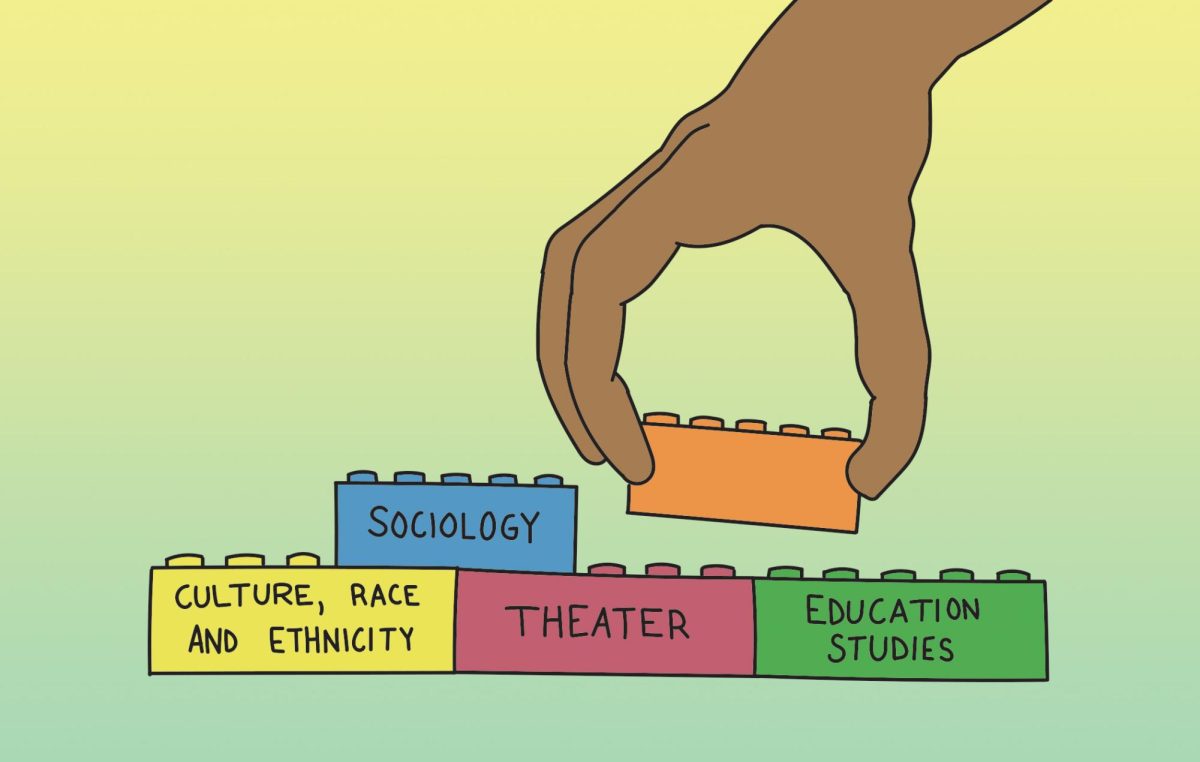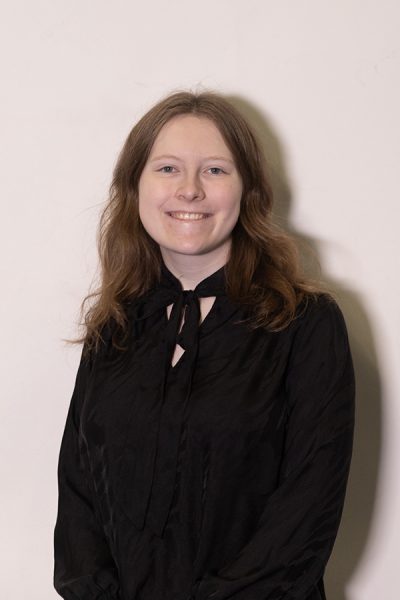After a two-year pause, Ithaca College has opened applications for the integrative studies major, a program that allows students to design a major that is not offered at the college by selecting individual classes.
The Integrated Studies advisory board decided to suspend the admission of students into the major in November 2021 because of staff restructuring, curriculum revision and the introduction of new majors.
Students must be in their sophomore year to start the integrative studies program but can apply in their first year. The process takes multiple weeks to months to complete. The deadline for applying to the major during Spring 2024 was in mid-October and the exact application deadline to start the program in Fall 2025 has yet to be determined. To start the process, students can fill out the integrative studies interest form.
David Brown, associate dean of Curriculum and Admissions for the School of Humanities, is an ex-officio of the board of advisors for integrative studies. As ex-officio, Brown is the final person to approve a student’s major plan. Brown said the major is beneficial for students who are self-motivated but do not feel like they fit a specific major at the college.
“[The major] gives them an opportunity to pull together resources that we have here on campus to build a program that is focused on what they really want to study in college,” Brown said.
In the major, students work with faculty across campus to find classes based on topics that fit their created major. The degree requires 120 credits, with 48–61 of those credits being in classes designed for the major and 59–72 being in Integrative Core Curriculum credits or electives which all students at the college are required to take. Students must also complete a senior project for a capstone to complete the major.
To be approved for the integrative studies major, a student must meet with the integrative studies coordinator to discuss a plan of action and confirm that the topic is not similar to majors currently offered. Then, students submit the application which consists of a proposal form, a list of courses in the created major and a letter from a chosen adviser to the board. The major is then approved or changed by the integrative studies advisory board made up of nine faculty from different schools at the college.
In recent years, the number of students graduating from the major has stayed relatively small compared to other majors at the college. In 2023, three students graduated from the major. 2022 had four students complete the major and 2021 had three students. 2020 had the biggest graduating class in recent years with eight students.
Mary Ann Erickson, a professor in the Department of Health Sciences and Public Health, said she was the coordinator of the integrative studies program from 2015–2019. Erickson said the program used to have a required junior and senior seminar to make the students in the major feel more connected, but the major no longer has the requirements because of scheduling difficulties.
“There was a relatively small number of students in the major,” Erickson said. “It was just hard to figure out when [to offer] this class. … In the context of the college right now where faculty numbers are lower, it is harder to make the case for getting three credits toward [a professor’s] workload for teaching three students.”
The most recent class of students who entered the integrative studies major before the hiatus graduated in Spring 2023, so there are currently no students in the major. Brown said the board is attempting to promote the major by reaching out to faculty, putting information on Intercom and creating a new interest form for prospective students to fill out.
Dawn Kline, associate dean of the School of Business, is a member of the board and said she has been spreading the word by informing faculty advisors on the major and having advisers let students know.
“Students who are expressing an interest in interdisciplinary things and multiple areas, the faculty advisers are aware of that and can point the student in the right direction,” Kline said.
Grace Madeya ’23 said she completed most of her theatre arts management major before her junior year and wanted to create a theatre education and social justice major through the integrative studies major.
“I got to explore courses in departments that I did not have exposure to before, like sociology [and] culture, race and ethnicity studies,” Madeya said. “I had a lot of opportunities to discover what it would feel like to combine theater with social justice and education, which is really cool.”
Madeya said her senior project was a comparative analysis project of social justice and educational outreach programs in theaters in Ithaca.
“I got to make connections with other theaters in the Ithaca community, like the Hangar Theater, the Kitchen Theater and Civic Ensemble,” Madeya said. “I was able to navigate what type of questions I could ask and really dive into what it’s like to combine theater and social justice.”
Madeya now works at the education department of the Providence Performing Arts Center. Madeya said she collaborates with K-12 educators to bring students to shows at the theater and plans shows for local students to perform.
“Having that experience [in education] really plays a role because I am able to connect with [students],” Madeya said. “I am able to build those connections and really sympathize and find ways to work together.”
Raquel Jacobs ’20 created a major through integrative studies called intercultural communications and management and double minored in education and economics. Jacobs said she now works as an Inclusion and Diversity Business Partner for Cashapp and integrative studies was the only way for her to fully prepare herself to work in the diversity, equity and inclusion field.
“[Diversity, equity and inclusion] is a newer field in the sense that it’s been around for a long time, but the amount of roles that have boomed in the last 10–15 years are immense,” Jacobs said. “Not even just [Ithaca College], but large universities are not catching up in time in terms of helping people who want to go into work in these fields by creating specific educational lines. … I thought it would be really valuable to craft something from scratch.”
Jacobs said integrative studies provided a great opportunity to work directly with faculty and connect with alumni who work in the field she wanted to go into.
“As I was learning from [faculty and alumni] and spending time with them, I realized that I could craft my education specifically to what could set me up for success to enter this field sort of seamlessly,” Jacobs said.
Jacobs said the proposal for creating the major for integrative studies made her map out a five-year plan for what she wanted to be doing and how she would use all of the components of her created major.
“I am doing the job that I essentially remember writing about in my proposal,” Jacobs said.
Jacobs said the major should be more visible and many students did not know the major existed.
“I encountered a lot of people who were in their senior year who had no idea [the major] existed and they’re like, ‘Wow, if I would have known this existed I would have done it,” Jacobs said.
















